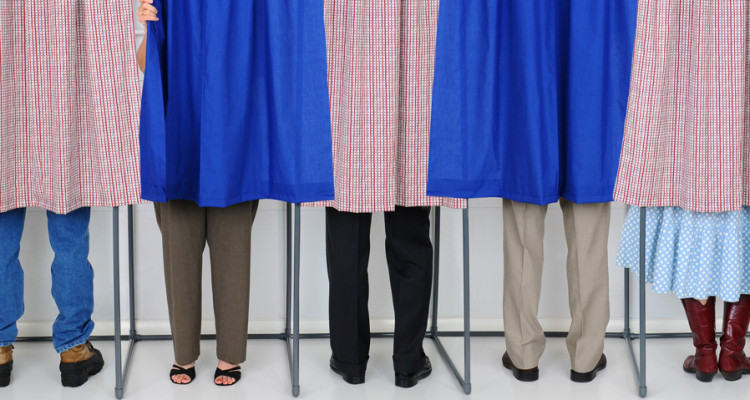This article was contributed by Chris Miller. Chris is the founder and CEO of the internationally renowned social entrepreneurship incubator and accelerator The Mission Center L3C. He is the co-founder of the Washington University Startup Training Lab and a senior lecturer of Entrepreneurship at the University of Missouri–St. Louis...
The 2016 election will be the first in which we Millennials represent the largest portion of the electorate. We have gained that influence at the same time — and in coordination with — the field of social entrepreneurship.
The Millennial generation (those born between 1981 and 1997) and the field of social entrepreneurship (comprised of a rapidly growing subset of entrepreneurs who are interested in doing sustainable good in the world while doing well professionally) share the same basic assumptions and values.
At the most fundamental level, both Millennials and social entrepreneurs value authenticity, transparency, and accountability. From that starting point, it’s not surprising that both Millennials and social entrepreneurs believe that capitalism (a social innovation itself) can be a tremendous force for good in the world — but only when the people who are in power value the reality of the social impacts of all economic actors.
Social entrepreneurship is neither new nor a fad. Jesus, Buddha, and Confucius were all social entrepreneurs. But these days, social media is forcing politicians to pay attention to what people really think, and social entrepreneurs are often the ones voicing their thoughts the loudest — and often with their wallets.
While both political parties are now aware of it (half of campaign spending is now directed toward mobilizing users of Facebook and other social media sites to get out and vote), no candidate seems to understand this interplay between Millennials and social entrepreneurs more than the least capitalistic candidate of them all: Bernie Sanders.
Contents
Socialism and the Social Entrepreneur
It has surprised me, personally, that Sanders, far from a Millennial himself (at 74, he’s the oldest candidate from either party), and his campaign have been the political embodiment of Millennials’ and social entrepreneurs’ aspirations for the changes we want to see in the world. While he needs no help finding inspiration, I would argue that both are greatly influencing his success.
It wasn’t long ago that the U.S. had a public policy of active aggression toward socialists like Venezuela’s Hugo Chávez. But the political landscape has changed drastically since the collapse of Enron and the Great Recession. Once upon a time, Sanders’ brash, candid beliefs would have been summarily dismissed. Today, though, his leftist leanings are precisely what make him a legitimate contender in the age of Millennials.
Sanders is saying what Millennials want to hear from a politician, and he’s using the language of social entrepreneurship to make his point. For him — and for Millennials — it’s not enough simply to be an entrepreneur. It’s not enough simply to vote. We have to do both in a sustainable manner that’s authentic, transparent, and accountable.
We aren’t naive, and we don’t want sugarcoated lies. We want action, and we want to be inspired to follow. Social entrepreneurs of my generation are taking the lead and putting our money where our mouths are by trying to change the system and actively persuade our social circles to move with us toward our proposed solutions.
Politicians trying to activate the average voter and the people who hold influence over them is the future of politics.
Feeding Facebook
Mark Zuckerberg and Priscilla Chan — surely influenced by Sanders’ consistent articulation of the fundamental instability of growing economic inequality — illustrated this reality just in time for the 2016 race when they announced in December that 99 percent of their Facebook shares would be given away to impact social and environmental causes.
The Zuckerbergs didn’t do it through a nonprofit foundation like Bill and Melinda Gates before them. Instead, they set up a for-profit LLC, more closely resembling Koch Industries, out of which they will do their philanthropy. It stands as a sharp critique of the corporate fraud and lack of government regulation that characterizes the era in which we Millennials were born.
Facebook — and social media in general — stands as an indicator of what’s to come. According to Pew Research Center, 66 percent of social media users have actively taken part in political activity on social media (up from 39 percent in 2012). Many are actively promoting political posts, making social media possibly even more important than traditional media, as the audience is directly involved instead of just passively watching.
Social media users, in a way, are becoming social entrepreneurs themselves.
What is most needed in this space, however, is not education for the entrepreneurial elite who already get this. The politicians and academics need to understand this trend and invest in support for social entrepreneurship. Those who do will be beacons of the next wave of innovation. As we all know, it’s “innovate or die.”
Civic Engagement in the Digital Age
We’re supposed to live in a society where greedy businessmen are kept in check by a fair and balanced government, but the reality is that centuries of corporate lobbying have corrupted the system. The people aren’t turning toward the government to fix anything. Instead, they’re taking it upon themselves to get the attention of social entrepreneurs to use our experience in creating sustainable new approaches to social change in order to provide a market-based counterbalance to keep the government in check.
While there’s still much work to be done, I’m optimistic that we’re well positioned as a nation to deal with the nefarious social constructs of racism and poverty — as well as the threats of climate change, a nuclear Iran, and global terrorism — precisely because capitalism allows social entrepreneurs to gain so much influence.
My hope is that we’ve arrived on the global stage just in the nick of time to provide the human capital and forward thinking necessary to sustainably impact the critical economic, social, and environmental concerns of our time.
As long as we continue to earn the support of the generations upon whose shoulders we stand, we can use capitalism-fueled social entrepreneurship as a catalyst for change in this world. The current global power structure may not value the reality of the social and environmental impacts of their actions just yet, but we, as a people, do.
I just hope — and encourage — my fellow Millennials to move beyond exercising our freedom of speech on Zuckerberg’s social network and turn out to vote in the 2016 primaries and general election so our ballots match our Facebook posts.
——
P.S. Subscribe to our newsletter below and receive critical insight on new investment and geopolitical trends, and much more. Only our best content will land in your inbox.













